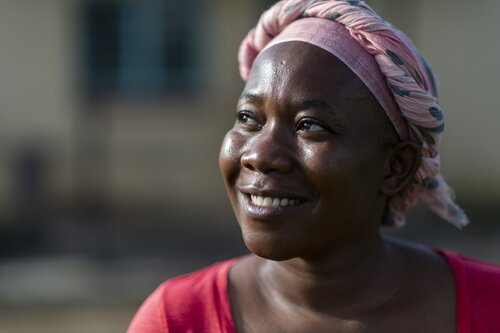UHC2030 hosted its annual UHC Day parliamentarian town hall to...
31 March 2021
From UHC2030 Co-Chairs Ms Gabriela Cuevas Barron and Dr Justin Koonin to the Generation Equality Forum taking place on 29-31 March 2021 in Mexico City

“In many places, the very idea of gender equality has come under attack. Regressive laws are back, and violence against women is increasing. And now, the seismic shocks of the COVID-19 pandemic have shattered the lives of millions of women and girls and destroyed many of our gains.” These are the words of the UN Secretary General, Antonio Guterres, at the opening ceremony of the Generation Equality Forum taking place on 29-31 March 2021 in Mexico City.
We wholeheartedly agree. We are at an extraordinary moment in global health. The COVID-19 pandemic has exposed all the inequities that keep us from achieving health for all and has exacerbated gender inequality in many ways (1). At the same time, it has given us the opportunity to rebuild our health systems differently.
COVID-19 reinforces that health is everyone’s business. We will only be successful if all of us pull our weight. This includes empowering women: their full and effective participation at all levels is essential to ensure that countries build health systems that address the needs of women and girls and protect everyone in efforts to build back better and be better prepared to respond to future pandemics and infectious disease outbreaks.
As co-chairs of the diverse and lively multi- stakeholder movement for universal health coverage (UHC), we welcome the Generation Equality Forum in Mexico and the leadership of the governments of Mexico and France, UN Women and all civil society and youth organisations engaged in this process. We are committed to join hands for renewed action towards the implementation of the Beijing Declaration and Platform for Action. UHC2030 brings together different voices, including governments at all levels, parliamentarians, civil society, private sector, international agencies, global health networks and academia.
We believe that taking action to implement the commitment to UHC can be catalytical to accelerate achievement of gender equality and women’s rights.
- Health is a human right, regardless of sex, gender, race, religion, age or any other identifier. UHC will only be truly universal when everyone, including all women and girls, can access the health services they need without discrimination or financial hardship.
- Because gender is a key determinant of health, UHC delivery must consider the different health needs of women and men throughout their lives. Women need an equal say in the health systems that determine their health, rights and wellbeing.
- Gender equity includes equitable access to necessary health services. To leave no one behind, UHC must integrate the sexual and reproductive health of women and girls.
- Well-trained, well-paid health workers are the backbone of strong primary health care. Women are 70% of the global health workforce but mostly work in low-status, low-paid roles. If we invest in women in the global health workforce, they will deliver UHC.
- The voices of women are critical in health decision-making at all levels, from community to global, to ensure UHC meets the needs and priorities of all genders.
UHC2030 recent review of the state of commitment to universal health coverage (2) shows that now more than ever, we need to come together, to ensure coherent action and to build trust and accountability by widening participation in health governance at all levels. There is still much to be done to ensure adequate support to front-line health workers, to meaningfully engage all stakeholders in decision-making and to ensure gender-equitable responses. We will endeavour to work with all our partners to help turn political commitments to UHC into action on the ground, focusing on linkages and interaction with implementation processes at the national level, which involve review by the legislative and executive branches of government.
In this context, we particularly welcome the Gender Equal Health and Care Workforce Initiative which aims to strengthen investment in health and care workers and their protection. We will bring all forces in the UHC movement to work closely with the French Government, WHO, Women in Global Health and the Global Health Workforce Network, who are all key UHC2030 partners.
It is time to make gender equality and women leadership a reality to achieve UHC. This starts with investment in the health and social workforce, 70% of whom are women, and which faces an expected shortfall of 18 million workers by 2030. Investment needs to come with equal and fair pay, safe and decent working conditions, and leadership roles for women. This is an imperative if we are serious about making good on the promise to leave no one behind on the road to UHC and ensure that up to five billion more people benefit from quality health services that meet their needs without suffering financial hardship.
To all the women who are doing so much to make this world fairer and healthier, we stand proudly beside you.
References:
Statement of UHC2030 co-chairs at the occasion of the International Women’s Day, 8 March 2021
State of commitment to universal health coverage, synthesis 2020
Photo: WHO / Blink Media - Gareth Bentley
More UHC2030 News
A global health financing emergency threatens progress toward...
UHC2030 at HSR2024: Advancing equity and inclusion in health systems through civil society knowledge
UHC2030, in collaboration with the SUPPORT-SYSTEMS research...
